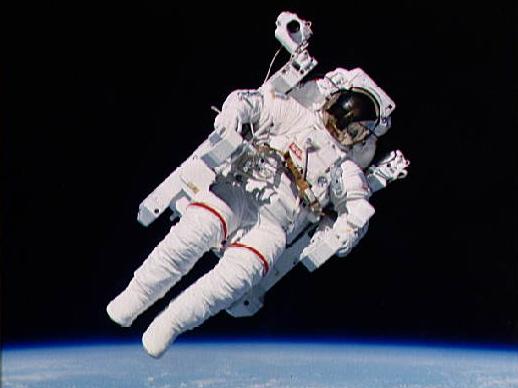Space enthusiasts, Star Wars fans and Klingons across the country were buoyed last week by the news that the European Space Agency (ESA) accepted the first Britain into its astronaut training programme.
37 year old Major Tim Peake said he was ‘amazed’ to have been selected, adding that the opportunity to train for space flight was a huge privilege. As a distinguished apache helicopter pilot, Major Tim will be no stranger to the intensive training programme involved; and as a self-confessed Star Trek fan, has admitted to harbouring dreams of space exploration from an early age. While he wouldn’t be the first Britain to fly into space, he would be the first person to do so under the British flag, with previous representatives flying with either American or private backing. ESA has been guaranteed seven flights to the International Space Station between now and 2020, though Peake is competing with other aspiring space travellers for the right to be on one. He reckons the hardest part of all will be the requirement that he become fluent in Russian.
His 16-month basic training begins on 1 September at the European Astronaut Centre in Germany. It includes a mixture of theoretical and practical learning on the history of space travel, space law and intergovernmental agreements covering worldwide cooperation in space. Peake and his fellow space trainees will learn about various ‘fundamental’ technical disciplines including spaceflight engineering, electrical engineering, aerodynamics, propulsion, orbit mechanics, materials and structures. They will also be expected to acquaint themselves with various scientific concepts related to life in space, for instance working in weightlessness, earth observation and astronomy. A key part of the training involves SCUBA diving. “To learn how to behave underwater is part of the basic skills that you need to do an EVA, or spacewalk,” says astronaut and Belgian Air Force pilot Frank De Winne. “Every person who has to do an EVA needs to have a basic diving certificate because the conditions you work under when you are doing a spacewalk are similar to those you experience when you are diving.”
“These young men and women are the next generation of European space explorers,” said ESA Director General Jean-Jacques Dordain. “They have a fantastic career ahead, which will put them right on top of one of the ultimate challenges of our time: going back to the Moon and beyond as part of the global exploration effort.”
Space enthusiasts, Star Wars fans and Klingons across the country were buoyed last week by the news that the European Space Agency (ESA) accepted the first Britain into its astronaut training programme.
37 year old Major Tim Peake said he was ‘amazed’ to have been selected, adding that the opportunity to train for space flight was a huge privilege. As a distinguished apache helicopter pilot, Major Tim will be no stranger to the intensive training programme involved; and as a self-confessed Star Trek fan, has admitted to harbouring dreams of space exploration from an early age. While he wouldn’t be the first Britain to fly into space, he would be the first person to do so under the British flag, with previous representatives flying with either American or private backing. ESA has been guaranteed seven flights to the International Space Station between now and 2020, though Peake is competing with other aspiring space travellers for the right to be on one. He reckons the hardest part of all will be the requirement that he become fluent in Russian.
His 16-month basic training begins on 1 September at the European Astronaut Centre in Germany. It includes a mixture of theoretical and practical learning on the history of space travel, space law and intergovernmental agreements covering worldwide cooperation in space. Peake and his fellow space trainees will learn about various ‘fundamental’ technical disciplines including spaceflight engineering, electrical engineering, aerodynamics, propulsion, orbit mechanics, materials and structures. They will also be expected to acquaint themselves with various scientific concepts related to life in space, for instance working in weightlessness, earth observation and astronomy. A key part of the training involves SCUBA diving. “To learn how to behave underwater is part of the basic skills that you need to do an EVA, or spacewalk,” says astronaut and Belgian Air Force pilot Frank De Winne. “Every person who has to do an EVA needs to have a basic diving certificate because the conditions you work under when you are doing a spacewalk are similar to those you experience when you are diving.”
“These young men and women are the next generation of European space explorers,” said ESA Director General Jean-Jacques Dordain. “They have a fantastic career ahead, which will put them right on top of one of the ultimate challenges of our time: going back to the Moon and beyond as part of the global exploration effort.”




